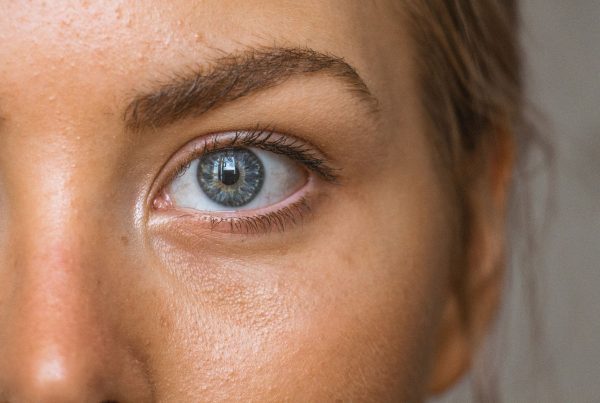1 in 5 people in America experience mental health issues on a daily basis. With so many individuals struggling to find the right solutions and modifications to take control of their health, one important perspective to consider is how holistic wellness advocates perceive the structure of mental health. One simple way to equate mental health is to think of it almost like a car. When someone takes a car into the shop, the mechanic does not check just the electrical system or alignment of the car before sending them on their way. They do not check just the fluids or the brakes. They are there to inspect all of these parts together and how they successfully function as part of a system. In the same way, the functionality of mental health is quite comparable to this notion. Mental health is not the direct result of just one factor acting upon it. Over the last decade, numerous studies have found that psychological well-being and behavior is influenced by a range of bodily components and lifestyle choices, such as food intake, gut microbiome, and physical health.
What is holistic wellness?
Derived from the term itself, holistic wellness is a multi-faceted lifestyle approach that emphasizes the overall wellness and health of an individual. In this mindset, individuals are encouraged to focus on all modifiable aspects of their health – ranging from physical, mental, and even spiritual perspectives. This mindset teaches that no singular aspect of health is more important or more effective in improving overall health than any another. Rather, all components of physical, mental, and spiritual health are continuously working in connection to produce health outcomes.
Those who practice holistic wellness believe that when one aspect of their health is properly taken care of, the rest of the body feels good as well. It allows individuals to make conscious decisions that will positively impact all aspects of their daily lives, since each decision affects one another. For example, a holistic wellness advocate who goes running after work not only believes that running can positively affect their physical health, but they know that prioritizing physical activity in this way releases endorphins that boosts their mood for the rest of the day and exercise can also reduce the risk of detrimental neurological diseases and overall protect their brain. Being able to view a simple 30-minute run as a facet for physical, biological, and mental improvement is one of the mindset shifts that holistic wellness supports.
Components of Holistic Wellness
Nutritional Wellness
The gut/mind connection. Have you ever heard the idiom about “trusting your gut feeling”? That feeling that you can sense in the pit of your stomach when your intuition is trying to communicate with you? Well, what if these gut feelings that you experience aren’t just part of a well-known idiom – what if your gut is actually in constant communication with your mind?
In the human body, there is a bidirectional connection between the central nervous system and the gut microbiome called the gut-brain axis. Over the last few years, research has shown that healthy communication between the gut microbiome and the brain is crucial for prevention of various illnesses, ranging from gastrointestinal disease, to cardiovascular disease, and mental illness. Becoming mindful of the foods that you consume and making purposeful decisions about the nutrients you put into your body is key to maintaining a healthy gut-brain axis.
When the gut microbiome is balanced, healthy bacteria are able to perform protective functions within the intestine, such as supporting the immune system, synthesizing important vitamins and amino acids, and preventing toxic bacteria from sticking to intestinal walls. An unbalanced gut, also known as gut dysbiosis, creates an environment within the body that is more susceptible to growth of pathogenic bacteria and a loss of healthy bacteria. A dysbiotic environment puts individuals at risk for depression, anxiety, and a myriad of other mental and physical health issues. The gut microbiome is also the location where 95% of the body’s serotonin is produced!

To maintain a healthy gut microbiome, clinical aesthetician and certified holistic practitioner, Colette Brown, has provided a few quick swaps for regular food items found in everyday diets to nourish the gut microbiome. Try switching out:
- Energy drinks for gut-friendly kombucha or other gut-friendly probiotic drinks. (Did you know coconut water and pink Himalayan seasalt contain natural electrolytes?)
- Coffee creamers for coffee blended with MCT-rich coconut oil or grass fed butter
- Gluten-free crackers (which may have inflammatory properties like potato flour or rice flour) for chia seed or flax seed crackers which are high in protein
Physical Wellness
As mentioned previously, exercise is an essential component to holistic wellness that is beneficial to more than just one aspect of health. More commonly known to the general population are the visual and physical benefits of daily, regular movement. For example, exercise can improve the strength of your bones and muscles, and it provides a means for weight management and weight loss. Though there has been more of a recent effort in clinical psychology to incorporate exercise into treatment procedures for psychiatric disorders, like anxiety, depression, bipolar disorder, and schizophrenia, many people still do not have a sense of deep understanding as to what some other bonus advantages of exercise are to mental health and biological health.
- Improves memory function. Regular exercise has been shown to cause structural changes in the brain that correlate with slower deterioration of the hippocampus, a neural region in the brain that supports memory consolidation. A research study from UT Southwestern determined that aerobic exercise over the course of one year can actually increase blood flow to the anterior cingulate cortex and the hippocampus in the brain, providing evidence that exercise may be useful for preserving brain function. Exercise has also been shown to improve the amount of gray matter in the brain and reduce damage to gray matter areas. This is important because a loss of gray matter in the brain is associated with the development of Alzheimer’s disease and other cognitive malfunctioning.
- Reduces feelings of anxiety. Engaging in regular exercise is an excellent strategy for physically diverting oneself from situations or thought processes that cause stress. In addition, exercise activates the frontal regions of the brain that control the amygdala – a neural structure known to process fearful and threatening stimuli. Similar to the information above, research has shown that regular exercise provides the brain with increased blood flow to frontal regions that decrease amygdala reactivity, resulting in a more resilient approach to apprehensive situations and increased self-esteem and self-control in tense circumstances.
- Connection to nutritional wellness. When individuals make the conscious decision to fuel their bodies with whole foods, such as fruits and vegetables, and other gut-friendly foods, like yogurt, whole grains, and olive oil, they may notice an increase in diet-induced thermogenesis, or an increase in their metabolism and its rate. For example, a study showed that after five hours of having a meal rich in walnuts, participants experienced a 28% increase in diet induced thermogenesis, meaning that they burned off more calories than baseline rates, while also staying fuller for longer. When coupled with regular exercise, the decision to eat gut-friendly dietary options may help individuals maintain weight and desired physical appearances. Providing yourself with foods that will nourish the gut microbiome also enables the body to perform exercise for longer and with more energy. Overall, holistic wellness teaches that making the intentional decision to include many aspects of nutritional and physical wellness components into everyday life can result in a body that works synergistically to improve body self-esteem, energy levels, and body image.
Sleep
It is well understood that humans function to their best potential when they reach a certain amount of hours of sleep per night. Why is that? Researchers have found that sleep and mental health are intimately related to one another, and a disruption of good sleep is linked to depression, anxiety, bipolar disorder, and other psychological outcomes. When humans sleep, brain activity is constantly fluctuating through the different stages of the sleep cycle. Within each of these sleep stages, the body can do a number of different processes, such as consolidating memories, repairing muscles, strengthening neurons, and strengthening learning patterns. Getting the right amount of sleep is important for maintaining mental health, but a lack of sleep puts individuals at a higher risk for developing a high inflammatory response. Without rest, high inflammatory levels can increase the likelihood of gut dysbiosis and puts individuals at a higher risk for heart disease, arthritis and diabetes. To improve healthy sleep habits, some nutritional and physical wellness efforts may help, like:
- Drinking chamomile tea before bedtime
- Avoiding alcohol and caffeine in the evening
- Eating meals high in fiber and low in saturated fat
- Choosing foods high in magnesium (such as spinach and avocado)
- Getting regular exercise
All in all, holistic wellness is an effective strategy for viewing health from a broader, more inclusive mindset. The more individuals are aware of how connected all of their biological, mental, and physical processes are, the more successful they will be in maintaining an intentional, healthy lifestyle.
At Remedy, for optimal mental health, we wholeheartedly believe in:
- Lifestyle changes first (including a healthy whole foods diet, limited substances, exercise, limiting stress).
- Psychotherapy, or ‘talk therapy’ (of which there are many different types of therapy and qualified therapists).
- And as a final part of the treatment plan when appropriate: medication. Medication can be prescribed by medical doctors, nurse practitioners and physician assistants. While medical doctors can prescribe independently, nurse practitioners and physician assistants prescribe under the supervision of a medical doctor. At Remedy, our team includes highly skilled and experienced psychiatric nurse practitioners, under the supervision of a medical doctor, a psychiatrist.







